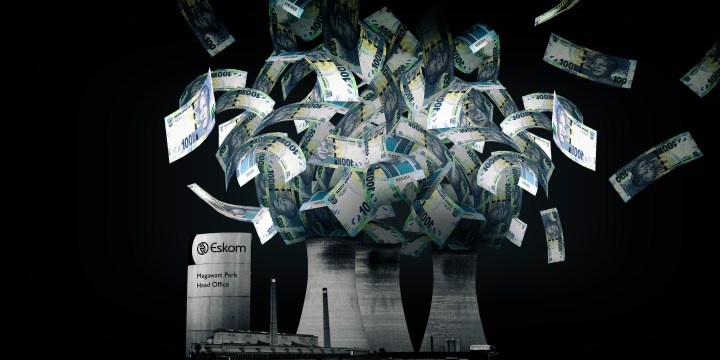CLIMATE MITIGATION POLICY
Weak carbon tax hinders South Africa’s green energy transition, says IMF

‘Inefficient government subsidies’ undermine SA’s energy transition, a recently published paper by the International Monetary Fund has found.
South Africa has had a carbon tax since 2019 but has done little to encourage the decarbonisation efforts required to meet the country’s climate targets or to make the economy competitive in the emerging global green market.
A recently published paper by the International Monetary Fund (IMF), South Africa Carbon Pricing and Climate Mitigation Policy, explores why this is the case, with some suggestions to guide policy.
“Meeting South Africa’s ambitious climate objectives will require a comprehensive strategy that includes a more effective use of carbon pricing policy, reducing inefficient government subsidies that have delayed the green transition,” the paper says.
“Inefficient government subsidies” include, of course, support for coal-guzzling Eskom, Africa’s biggest emitter of the greenhouse gases linked to climate change.
In South Africa, the terms used are usually “bailouts” or “debt relief”. But they amount to subsidies that undercut the impact of a carbon tax, not least because of Eskom’s exemptions on this front.
“Large government transfers to the carbon-intensive energy sector significantly reduce the effective price of carbon in South Africa,” the paper says.
“Eskom currently enjoys the offset from the electricity levy paid under the Carbon Tax Act and, with the extension of the transition phase, does not expect to have a liability for the tax until 2026.
“Eskom currently pays the electricity levy on power produced from non-renewable sources, but subsidies to Eskom on a rand per tonne of CO2e [carbon dioxide equivalent] basis are vastly greater than both the electricity levy on the same basis and the official carbon tax rate.”
Indeed, the transfers to Eskom amount to more than R250 a tonne of CO2e to subsidise its emissions, compared with a carbon tax that is supposed to be R134 a tonne.
“This, together with the uncertainty over when Eskom will become liable for the carbon tax, provides little incentive for Eskom to move away from coal-fuelled generation,” the paper pointedly says.
A racket on a global scale
If it’s any comfort to a South African audience, it must be said that this racket is taking place on a global scale as our planet burns.
A World Bank report published in mid-June, Detox Development: Repurposing Environmentally Harmful Subsidies, found that fossil fuel subsidies worldwide, as well as environmentally harmful direct government expenditures on agriculture and fisheries, amounted to $1.25-trillion a year.
World Bank senior managing director Axel van Trotsenburg pointed out in a blog post that this is “the missing trillions for climate change” and that it is “hiding in plain sight”.
The bottom line is that, on a global scale, subsidies for fossil fuel usage and other activities that inflict environmental harm are more than 10 times the amount that has been committed to the green transition.
Returning to South Africa, the IMF sees other hurdles to the green transition. For example, transitional tax-free thresholds, allowances and carbon offsets form part of the transition phase of the carbon tax.
“The generous tax-free thresholds and allowances contributed to a low effective carbon tax rate in South Africa. The official carbon tax rate was set at R120 per tonne of CO2e initially and increased to R134 by end 2022,” the report says.
“However, based on the carbon tax revenue collected, the estimated effective rate was less than R7 per tonne of CO2e during the FY2021-22.”
Among other measures, the IMF recommends that “…generous tax-free allowances and exemptions under the carbon tax should be phased out in due course”.
South Africa needs to slash its carbon emissions massively for the sake of air quality, notably in Mpumalanga and Gauteng, and so that the country can meet its own climate goals. It also needs to do so to remain economically competitive, as key markets for South African exports, such as the European Union, are phasing in taxes on imports based on their carbon footprint.
There is much debate about the utility of carbon taxes to accelerate this process, especially in an economy such as SA’s, which is both developing and heavily taxed. But subsidising fossil fuel industries and emitters clearly undermines the point of such a tax while diverting funds that could be used to finance the green energy transition. DM
To read all about Daily Maverick’s recent The Gathering: Earth Edition, click here.

















 Become an Insider
Become an Insider
Comments - Please login in order to comment.